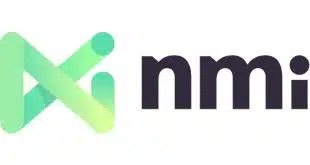Banks and processors looking for a way in to the potentially lucrative market for health-care payments could do worse than to cultivate that market for remote deposit capture, says an expert in electronic check processing. But while hospitals and clinics represent a wide-open opportunity for banks, it's not one that will remain uncultivated for long. Non-bank third parties, especially independent sales organizations, will soon challenge banks for dominance in this market, says Bob Meara, senior analyst at Boston-based Celent LLC. “Banks who are slow to act will be playing catch-up,” he warns in an interview with Digital Transactions News. Less than 10% of hospitals and practitioners' offices use remote-deposit technology to process checks, according to research by Meara released earlier this month. In his report, he calls this “trivial” adoption of remote capture, but this low level of usage is owing more to lack of awareness than to lack of interest. Meara says banks have focused on selling the relatively recently developed remote capture product to large businesses first, so small businesses, medical offices included, are not fully aware of the technology. With remote deposit capture, businesses can scan checks and send MICR data and check images to their banks for processing through image-exchange networks, replacing armored couriers and multiple trips to the bank with check deposits. The technology allows businesses with multiple locations to consolidate deposit relationships with one bank, regardless of geography. Doctors' offices and small hospitals in particular are prime candidates for remote capture, Meara says, because the need for it is acute. They take on average 13.5 checks per day, both in the office and through the mail. That's twice the volume of checks accepted by comparably sized small businesses, Meara says. And they make 2.7 trips to the bank each week on average, compared to 2.3 for small businesses in other markets. Meara says in the course of talking to medical offices he found a strong interest in remote capture. “In our survey, there was interest expressed by some respondents who before [the survey] had never heard of remote deposit capture,” he tells Digital Transactions News. “Even with a relatively low level of awareness, the stated interest was high.” Unlike other technology products, remote capture doesn't have to be customized for the unique?and often highly complex?characteristics of health-care payments. This allows banks and processors to deploy the technology quickly and then work on more sophisticated solutions to handle insurance-related payments, Meara says. “There's no particular health-care twist to it, so go for it,” he advises banks. But they had better act fast. Meara says it's only a matter of time before ISOs move into the market, drawn by the chance to sell something new to existing card-accepting clients and win new business with non-clients. Most medical offices, Meara points out, also accept cards. “The die is already cast,” he warns. “It's going to be a no-brainer for ISOs to sell remote capture.” Here, banks might be handicapped by a slow-reacting sales culture. “ISOs have very much a proactive sales posture compared to banks, which build branches and wait for people to come,” he says. Some non-bank acquirers have already moved into remote deposit capture. For instance, Heartland Payment Systems, a Princeton, N.J.-based merchant processor, introduced in October a remote-capture product called Express Funds. It's not too late for banks, but they will have to become more flexible, particularly with pricing, Meara advises. Most banks, he says, price remote capture by charging for scanners, deposit service, and electronic service separately. “Banks need to price it very differently,” he says. One approach, which some financial institutions are adopting, is to bundle the scanner with the service, a move that requires banks to subsidize scanners in the way that ISOs subsidize card devices with the free-terminal offers they use to win new business. This is a move some banks may not be willing to make. “The path is long and expensive,” Meara warns. But the potential payoff could change their minds. “There's an opportunity for banks to have a significant share of the health-care business,” he says.
Check Also
NMI Taps Mastercard to Power Its New Tap-to-Pay Service for Small Merchants Eyeing Mobile Payments
With an eye on small merchants, payment processor NMI on Thursday announced a tap-to-pay feature …



